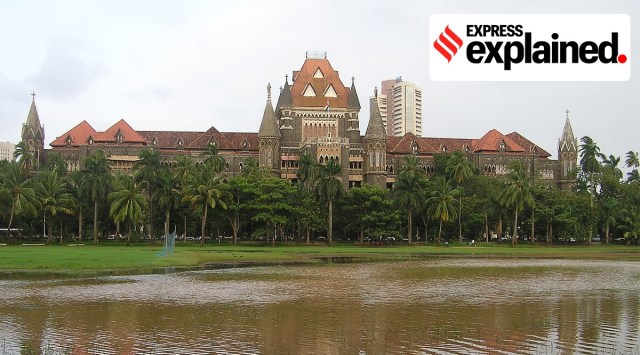Does daughter have right to family property after receiving dowry? What HC said in a Goa case
The case revolved around a petition filed by the eldest daughter in a family of 10 people, including four sisters and four brothers.
 Justice MS Sonak quashed a deed transferring the petitioner daughter’s property to her brothers without her consent. (Wikimedia Commons)
Justice MS Sonak quashed a deed transferring the petitioner daughter’s property to her brothers without her consent. (Wikimedia Commons)
A daughter’s right to family property will not extinguish even if dowry was provided to her at the time of marriage, the Goa Bench of the Bombay High Court held on March 16 in the case of ‘Terezinha Martins David vs. Miguel Guarda Rosario Martins & Others’.
In doing so, Justice MS Sonak quashed a deed transferring the petitioner daughter’s property to her brothers without her consent. “There is no evidence about providing a sufficient dowry to the daughters of the house. However, even if it is assumed that some dowry was provided to the daughters, that does not mean that the daughters cease to have any right in the family property,” the court said.
What was the case about?
The case revolved around a petition filed by the eldest daughter in a family of 10 people, including four sisters and four brothers. In her plea, the petitioner drew attention to a deed of succession executed in her favour by her late father, Antonio Martins, declaring her as the property heir.
The plea also contested the transfer deed dated September 8, 1990, by way of which her brothers and mother had transferred the petitioner’s family shop to their two other brothers, seeking to declare the same as “null and void.” The daughter also prayed for a permanent injunction restraining her brothers from transferring her property without her written consent.
What did the brothers argue?
The petitioner’s brothers argued that “sufficient dowry” was provided to all four sisters at the time of their marriage, following which three of them founded the partnership. The suit shop and the property beneath it were brought into the partnership and was an asset of the firm, they contended. Based on this, they argued that neither the petitioner nor her three sisters had any right, title, or interest in the suit shop.
In their counterclaim, the brother also argued that the petitioner’s claim will be barred by the statute of limitations as more than the stipulated three years had passed since the transfer deed was instituted and that the petitioner filed her suit after four years.
What did the Trial and Appellate Court hold?
The trial court, by a judgment and decree dated May 31, 2003, dismissed the daughter’s suit and partly decreed the counterclaim by cancelling her deed of succession. However, the first appellate court upheld the dismissal of the daughter’s suit, set aside the decree in the counterclaim, and upheld the succession deed showing her as one of the successors of the late Antonio Martins.
Following this, the daughter instituted a second appeal before the Goa Bench of the Bombay High Court questioning the dismissal of her suit. Meanwhile, her brothers did not question the rejection of their counterclaim or the previous declaration of her succession deed as valid.
What did the HC court decide?
The court observed that although the present suit was filed by the petitioner after four years of instituting the transfer deed, the daughter came to know about it only six weeks prior to the institution of the suit.
“The limitation period, in this case, was governed by the provisions of Article 59 of the Schedule to The Limitation Act 1963. For a suit to cancel or set aside an instrument or a decree or for the rescission of a contract, the period of limitation prescribed is three years. The time for which this period begins to run is when the facts entitling Plaintiff to have the instrument or Decree canceled or set aside or the contract rescinded first become known to him,” the court noted while observing that the institution of the transfer deed became known to the eldest daughter much after it came into being.
The court also drew attention to the lack of evidence presented by the brothers to prove that their sister possessed knowledge of the transfer deed much before, deeming that this was an essential requirement as per the law laid down in SC’s 1961 ruling in ‘KS Nanji and Company vs Jatashankar Dossa and others’.
“Where a person has a right to sue within three years from the date of his coming to know of a certain fact, it is for him to prove that he had the knowledge of the said fact on a particular date, for the said fact would be within his peculiar knowledge. Once sufficient evidence is adduced on this aspect, the onus would shift on the defendants,” the Apex Court had held in the 1961 ruling.
The Goa Bench of the Bombay High Court also looked at various provisions of the Portuguese Civil Code, 1867, such as Articles 2184, 1565, 2177, and 2016.
What provisions of the Code come into the picture?
Article 1565 of the Code provides that the parents or grandparents shall not be entitled to sell or mortgage to children or grandchildren if the other children or grandchildren do not consent to the sale or mortgage.
Denying the defendant’s contention that Article 1565 of the Portuguese Civil Code was repealed by extension of the Transfer of Property Act, 1881 to Goa, the Court reiterated its 2011 decision in ‘Norberto Paulo Sebastiao Fernandes & ors. vs. Gabriel Sebastiao Idalino Fernandes..’ to say that it is clear that the provisions of Article 1565 of the Code are still in force. Therefore, Matilda, the mother, was not entitled to transfer her share in the suit shop to her two sons without the consent of the other sons and daughters, the court said.
Moreover, in its 2012 ruling in ‘Pemavati Basu Naik and ors. vs. Suresh Basu Naikand anr’, the Bombay High Court held that there is an express bar under which the parents cannot sell immovable property to the children without the consent of all the children.
Similarly, Article 2177 of the Code provides that a co-owner may not, however, dispose of any specific part of the common property unless the same is allotted to him in partition; and the transfer of the right which he has to the share which belongs to him may be restricted in terms of the law. The Court referred to its 1999 ruling in ‘Jose Antonio Philip Pascoal da Piedade Carlos dos Milagres Miranda vs. Joao Luis Laurente dos Milagres Miranda’ to reiterate this. Thus, the court also rejected the defendant’s contention about the repeal of Article 2177 by provisions of Section 44 of the Transfer of Property Act.
“In Joana Errie vs. Albano Vaz and ors., this Court has held that transfer by one co-owner without consent of others is prohibited under Article 2177 of the Code, which continues to be in force in the State of Goa,” the Court added.
Dismissing the argument of the defendants that an oral partition had taken place, the court highlighted that an “oral partition” was not even contemplated under the provisions of the Code. In this regard, the court drew attention to Article 2184 of the Code, which provides that the partition of immobile assets is null if not carried out in a public deed or public proceedings.
Finally, the court concluded that in this case, it was evident that the ‘plea of partnership property was a weak and misconceived attempt to ward off the legal effects of Articles 1565 and 2177 of the Code” and allowed the appeal in favour of the eldest daughter.
- 01
- 02
- 03
- 04
- 05






































